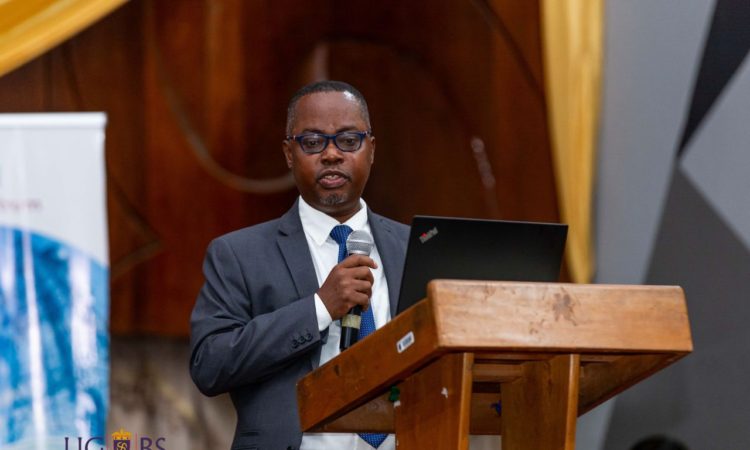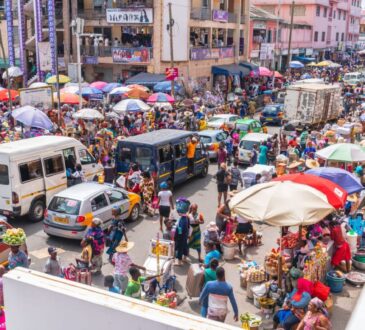
The rise in cost of living and economic instability across the world over the past few years has contributed to uneasiness in the financial lives of many people and businesses. In Ghana, the unstable currency value and growing inflation are biting hard, pushing up the cost of products and services on the market, way faster than salaries can adjust.
The big question remains – how can an individual or business build the ability to withstand these economic shocks and maintain financial stability?
In delivering a thought-provoking presentation to students and industry stakeholders at the University of Ghana Business School’s 44th Management Week celebration, Telecel Ghana’s Director of Mobile Financial Services and Digital Transformation, Philip Amoateng shared insights into the power financial technology (FinTech) wields in building the financial resilience of individuals and households, amid the current economic climate.
Explaining financial resilience as the ability to withstand unexpected expenses while maintaining financial stability, Mr. Amoateng outlined Ghana’s large informal sector, limited access to traditional banking services, the banking sector crisis, the post effect of the domestic debt exchange programme and economic volatility as some of the key challenges currently facing the financial sector, which are hindering financial resilience of individuals and businesses.
Fintech has laid the foundation for unbanked people to enter the formal financial services economy as mobile money services have improved access and convenience of making transactions. It has allowed customers to access savings and loan products to help achieve their financial goals and aspirations.
Between 2020 and 2021, Ghana recorded an impressive 58.5% growth in mobile money and digital financial services, a testament to the critical role FinTech plays in bridging the financial services gap. Mr. Amoateng also attributed the growth to the Bank of Ghana’s proactive policies to promote financial inclusion in Ghana.
He said “By integrating advanced technology with financial services, FinTech has democratised access to financial transactions, monetary advice, and risk management strategies. It continues to help consumers navigate turbulent times with greater resilience, previously the purview of only the affluent and privileged few.”
On the specific ways FinTech enhances financial resilience, Mr. Amoateng said mobile money services like Telecel Cash enables easy saving and payments while reducing reliance on cash and lowering transaction costs. He said digital banking platforms are broadening access to relevant products like savings accounts, financial literacy apps and loan guidance.
“FinTech is encouraging a culture of saving through the automated savings apps and provides access to low-cost investment options like mutual funds and government bonds. Microloans offered via mobile platforms provide vital lifelines for emergencies and business needs, while peer-to-peer lending platforms give community-based support.” He added.
Another area ripe for FinTech is insurance. Microinsurance products offer affordable health, life, and property coverage, while InsurTech innovations streamline the process of purchasing and claiming policies.
Mr. Amoateng presented a compelling case study of Telecel Cash’s record, revealing that the platform processes over GHC 3 billion monthly transactions individuals and businesses make to cover everything from service payments, personal expenses to remittances. In 2023 alone, Telecel Cash paid over GHC 30 million in interest income to roughly 2.6 million registered customers and facilitated over GHC 500 million in direct international money transfers.
“You all agree with me these benefits go a long way to improve financial resilience of individuals and households. This is the kind of resilience a digital finance overlay on technology can bring to individuals and households in Ghana,” Amoateng said.
Looking ahead, Amoateng emphasised the need to expand rural access to FinTech services for equitable distribution, integrate the technology within sectors like agriculture and healthcare and leverage these tools for personal, financial well-being.
He concluded with a call for cogent solutions to the challenges of FinTech including cybersecurity threats, social engineering schemes, overburdening taxes and infrastructure vandalism as they collectively stifle the growth of the sector.







